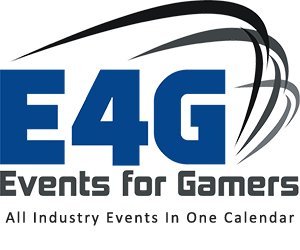 The International Game Developers Association (IGDA) has championed the interests of the game development community since 1994. Of course, a lot has changed in the technology, culture, community in and around the games industry in the many years since then (as well as the events that helps support the business and community). As the IGDA has grown, they’ve had to keep pace with these many changes, too.
The International Game Developers Association (IGDA) has championed the interests of the game development community since 1994. Of course, a lot has changed in the technology, culture, community in and around the games industry in the many years since then (as well as the events that helps support the business and community). As the IGDA has grown, they’ve had to keep pace with these many changes, too.
With COVID-19, challenges around burn-out, equality and equity, and much more, the game industry has been particularly in flux in the last couple years. What’s the IGDA’s take — and how can the business, the community, and events evolve? Events for Gamers engages in an interesting Q/A conversation with the Executive Director of the IGDA, Renee Gittins, for the organization’s perspective on some of these issues that affect game developers and the folks that play their games.
Events for Gamers (E4G): For those who may be unfamiliar, what is IGDA’s current mission in 2021— and how does it compare to years past?

Renee Gittins: IGDA’s mission is to support and empower all game developers around the world in achieving fulfilling and sustainable careers. This mission has changed slightly in its phrasing over the years, but the IGDA has and will continue to stand firm as a voice in the best interests of individual game developers.
E4G: How has COVID-19 changed (and continuing to change) the way IGDA interacts with the game development community?
Renee: The COVID-19 pandemic greatly affected our normal schedule of conference and local event interactions with game developers. I am so proud of our Chapter and SIG leaders, board, and staff members who have been able to pivot IGDA’s efforts into virtual events while creating even more valuable resources to assist developers through these difficult times; from the IGDA’s Game Developer Crisis Conference to our Global Mentorship Program.
E4G: From the IGDA’s perspective, what are a few of the most critical needs or concerns facing the game development community, and how is the organization involved in addressing them?
Renee: Right now, the past and present misconduct, discrimination, and harassment within our industry is one of our main topics of focus. We cannot allow such behavior to continue within our industry, as it not only lessens the strength of our teams and the quality of our projects, but causes great and lasting harm to our peers.
In order to support these changes and to empower company leaders to take action to stop the toxic cultures that allow this behavior to thrive, the IGDA has recently published our own Guide for Game Companies: How to Create and Sustain a Positive Work Culture. This resource details how to proactively define and improve a game studio’s culture to prevent toxicity and poor behavior from thriving, while our HR Policy Guidebook Template provides the outline for the creation and distribution of direct policies to support such a culture.
In addition to these papers, we have stood proudly with our Special Interest Groups, Chapters, and other resources to support those affected by such behaviors, and have worked actively to condemn bad behavior and empower positive leadership.
Together, we can condemn the failures in our industry’s past and take the steps forward to enact change that will ensure this wonderful, creative, diverse industry will support every person who contributes to it.
E4G: From the IGDA’s perspective, what’s the role of online and hybrid events going forward? What are the positives and negatives of these event formats?
Renee: Virtual and hybrid events are a wonderful equalizer for our industry, providing better access to information and networking opportunities than has been possible before for those who have been limited by their location or socioeconomic status. Of course, we as people also greatly prefer socializing and interacting with others in person, so there will always be a preference towards in person events when they can be safely hosted.
E4G: Speaking of online events, what was the IGDA’s role during the most recent (online) GDC? We’re curious to know what your impression and takeaways are from the event.
Renee: As is our tradition, the IGDA has partnered with GDC to bring nearly two dozen roundtables on various discipline and affinity based topics presented by our Special Interest Groups. These conversations dive into important topics from destigmatizing mental health difficulties to helping developers tackle the climate crisis from within their own studios. These conversations always leave us inspired about the forward progress of our industry and give us knowledge about what steps to take next.
E4G: Are there any game industry-focused events coming up in the next few months that the IGDA is involved in that you’d like to recommend to our readers
Renee: The IGDA has two upcoming events, one right around the corner and one in November:
Global Industry Game Awards (GIGA) in partnership with devcom on August 27th. These awards are unique from other industry awards in that they celebrate the contributions of discipline teams and individuals, acknowledging the hard work of the developers. In November, we are once again hosting Pathdin.gs Global South. Pathfindin.gs is our conference that shines a spotlight on developers from the global south and helps them spread their messages while connecting with job and publishing opportunities. Both are wonderful opportunities to support developers across the globe.
E4G: Whether for the curious, new or advanced learners in game development, what new initiatives or outreach might the IGDA be working on that you’d like to let folks know about?
Renee: Our very next whitepaper is about inclusion game design and development, and will dive into how to create a truly inclusive game from building your team and the initial research of the project all of the way through character designs, marketing, and community management. In order for our industry to become more diverse and inclusive, we need to make more content and communities that are welcoming to all.
We want to thank Renee Gittins for her insights from the IGDA‘s perspective!



